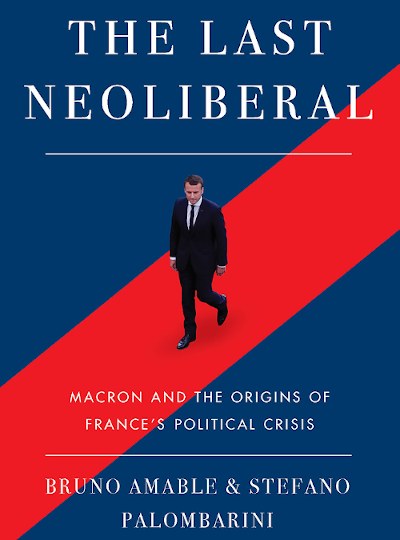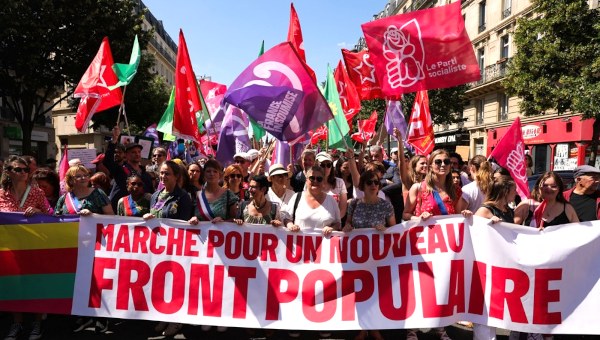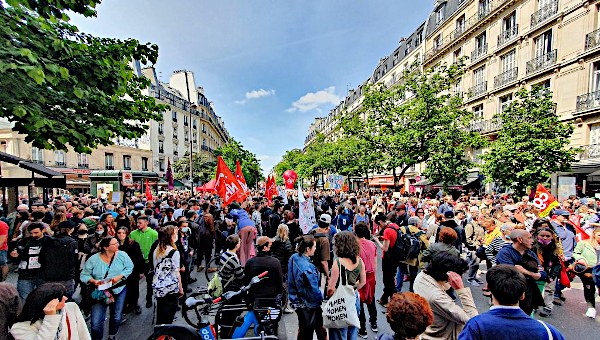The Meaning of Macron: Lessons from the Fifth Republic
France has always had a slippery status within comparative political economy. Once upheld as an ideal model of a planned capitalist economy during the Les Trente Glorieuses of the postwar period, the Fifth Republic has since been treated as somewhat of a laggard following the infamous ‘U-turn’ of the Francois Mitterrand government in 1983, which moved French policy away from Keynesian demand management, indicative planning, and extensive nationalization of key sectors of the economy and in the direction of neoliberalism, privatization, and austerity. The étatism of the French political economy was never fully extinguished, however, and in the period of neoliberal consensus spanning the fall of the Soviet Union to the 2008 financial crisis, the French economy was treated by liberal commentators with a sense of bemusement and slight confusion: partially reformed but not quite fitting the mould either of the neoliberal rigour of Anglo-capitalism or the ordoliberal austerity and competitive corporatism of the German and Nordic regions. Rather, its ‘state-led’ model of capitalism – with its ‘rigid’ labour market protections and relatively sizable government sector – was largely seen as a postwar relic: plodding through various failed attempts at ‘modernization’, only passably adapting to the exigencies of neoliberal globalization.
This ‘institutional sclerosis’ was blamed, of course, for the poor performance of the French economy during this period, and political and economic elites have made continuous attempts to transform the system in a market-oriented direction more amenable to the preferences of France’s industrial and financial firms. One aspect of France’s policy regime that has provoked considerable frustration on the part of French capital has been the relatively strong labour market protections historically enjoyed by workers. Due to their centrality to the lives of much of the French workforce, the reform of these protections – embodied in the country’s well-known code du travail – to a more ‘flexible’ employment model (i.e., flexible for capital) has been the cause of significant social upheaval and political backlash since the neoliberal turn of the 1980s. During this period, the two main governing parties on the left and the right – the Parti Socialiste (PS) and (the various manifestations of) Les Républicains (LR), respectively – have attempted different reconfigurations of the French labour market model, with only incremental success. As an exasperated Emmanuel Macron stated in 2017, “France is not a reformable country.”

La République in Crisis
In their new book, The Last Neoliberal (Verso, 2021), Bruno Amable and Stefano Palombarini explore this impasse within French neoliberalism and its integral relationship to the election of Macron: the young, ‘progressive’ firebrand, whose new, ‘radically centrist’ La République En Marche (LREM) party was elected to power in 2017, supposedly with a popular mandate to finally revolutionize the French model. However, Amable and Palombarini argue that the election of Macron is more of a symptom than an antidote to the country’s political crisis. They maintain that what France has been experiencing over the course of three decades has been, in the Gramscian sense, a hegemonic crisis of the neoliberal project, predicated on the inability of French elites to form a consistent social bloc capable of buttressing the ‘necessary’ reforms. The surprise election of Macron was a consequence of a long history of failed attempts of modernization that have significantly transformed the French party system, rather than the revolution of the center as it was portrayed in the liberal press.
The Road to Macron
The historical record of neoliberal reform leading up to the election of Macron is indeed tumultuous, reflecting the country’s well-known disdain for (what is misleadingly labelled as) Anglo-neoliberal politics and its historically strong legacy of grassroots protest. While a series of would-be reformers dating back to Mitterrand’s government have attempted to push labour market and other policy transformations from the top of the French political system, they have been thwarted, either on the streets or in the voting booth, and forced to withdraw or significantly reformulate their policy ambitions. Ironically, given the role of the New Right in the history of neoliberalism elsewhere, the French republican right has had the least success in establishing a neoliberal regime. In 2006, Jacques Chirac was made to retreat from a controversial youth unemployment law in the face of large-scale student uprising and was unable to make any gains on labour market reforms. In 2008, Sarkozy’s government attempted to implement EU-styled ‘flexicurity’ policies – i.e., a combination of dismantling labour market protections combined with training and re-training policies for unemployed and displaced workers – as well as extend the retirement age but was rebuffed on both fronts by mass protests in the streets of Paris. For a president seen initially as the ideological heir of Thatcher and Reagan, Sarkozy famously rebuked this lineage following the Global Financial Crisis and proclaimed laissez-faire to be “finished.”
While the right has struggled, the PS and the French center-left has made the most headway on a neoliberal agenda, despite ostensibly representing the interests of those whose material security is most at risk from liberalization measures. This contradiction is often resolved in France by suggesting liberal reforms are for the benefit of young and precarious labour market “outsiders” whose interests are fundamentally opposed to those of the sheltered working-class aristocracy of aging labour market “insiders,” despite very little evidence that this is the case. Generally, what labour market outsiders want is the extension of those protections, not their removal.
Nevertheless, Macron’s predecessor, the Socialist president Francois Hollande, pushed the neoliberal envelope furthest by enacting reforms by decree and betraying many of the initial campaign promises he made in 2012 before taking over the presidency. Hollande abandoned the fiscal reforms he had proposed – which were intended largely to secure the left’s vote – and, instead, created a series of ‘competitiveness pacts’ with French employers that reduced their overall contributions to the French social safety net and significantly subsidized low-wage employment, both of which were done in the hope of creating new jobs. Despite this unemployment increased, reaching nearly 12% in 2017 under his watch. Major social upheaval also followed from the draconian introduction of the 2016 El Khomri law (or as it is known in France, Loi travail) which significantly liberalized French employment relations by making it easier for companies to lay off workers through employment protections and diminished severance pay. For his efforts Hollande was punished heavily in the polls to the point of making his own re-election entirely unfeasible in 2017, paving the way for Macron to enter the race for the presidency.
The latter did not run as a PS candidate but he was closely associated with French centrist and center-left circles. Macron began his career as a public auditor before moving into investment banking. Following the election of Hollande in 2012, he was appointed first as a deputy secretary and then to a prominent cabinet post in 2014. Although he formally broke with the PS prior to his run for presidency, there remained deep links between the Socialists and the nascent LREM movement and organization. Macron was elected on perhaps the most ambitious reform agenda in the neoliberal period but soon found his proposals stalled by the massive yellow-vest, or Gilets jaunes, protests of Spring 2018. Since then, he made some progress in liberalizing pensions and labour market protections but in the process become one of the most unpopular and derided presidents in French history – nicknamed ‘Jupiter’ by insiders for his royal self-aggrandisement and derided as the ‘The President of the Rich’ for his attacks on the French social model.
According to Amable and Palombarini, the consequence of this on-going political crisis over the last thirty years has been the alienation of working-class voters and a gradual process of partisan dealignment – the separation of political parties and their traditional bases of support – and with this, the fragmentation of the traditional left-right divide in the country. In the 1981 presidential elections, for example, the traditional centre-left and centre-right parties amassed 87.5 per cent of the overall votes, whereas in 2017, they achieved below 30 per cent of vote combined. The interim period has been characterized by the slow-moving disintegration of the French party system as new players have emerged on the scene to absorb and reshuffle disaffected voters – including LREM and the far-right Front National (FN).
Crucially, no party or coalition has succeeded in establishing a new hegemonic bloc capable of resolving the political crisis. The latter, according to Amable and Palombarini, could hypothetically take the form of a bloc bourgeois that brings together a centrist coalition of socially liberal, but fiscally conservative educated professionals: ‘high skill’ workers on both the center-left and center-right – Piketty’s ‘brahmins’ – which are predominantly found within the same upper income brackets and urban constituencies. Policy-wise, the bloc bourgeois could be united around an agenda furthering European integration and austerity, enhancing labour market deregulation, and increasing the national stock of human capital through the expansion of education (for their children) and training (for someone else’s). This liberal-centrist coalition of middle-class voters, favoured especially by modernizing centre-left elites in France (the ‘second left’), would be large enough to not have to rely on the support of working-class constituencies opposed to neoliberal reforms.
While Emmanuel Macron’s very public break with both the left and the right dating back to 2016 would appear to make him the ideal candidate to lead a potential centrist coalition of this kind, Amable and Palombarini, backed by French electoral data, argue that he has failed in achieving this feat in any significant sense – but not for any lack of trying. According to the authors, the problem is that the bloc bourgeois was never large enough to form an electoral majority on its own, representing only about one third of the electorate. As such, any viable electoral strategy necessitates the continued incorporation or co-optation of politically salient working-class preferences, particularly around labour market protections.
Macron’s failure in this regard was reflected in the results of the French vote: over the two rounds of preferential voting that comprised the 2017 French presidential election, under 48 per cent of Macron’s overall votes represent outright support – i.e., a voter’s first choice selection. This can be compared to 61 per cent of the Le Pen’s FN vote and 69 per cent of the left candidate Mélenchon’s support. In other words, Macron was quite clearly the second choice for many with under a tenth of the overall electorate supporting him outright. Rather than representing a ‘brahmin’ uprising of sorts, the election of Macron reflected a largely negative vote aimed at preventing the election of the far-right Le Pen, which the liberal mainstream, as elsewhere, expertly utilized as a ‘bogeyman’ to shepherd left support for Macron in the second round of voting.
The latter’s inability to consolidate an effective bloc bourgeois has been further demonstrated by President Macron’s quick pivot to the right of the French political spectrum. This has been evident by, among other things, the introduction of draconian immigration policies, in enhancing the repressive apparatus of the state through police protections and anti-Islamist legislation, and in a new-found culture-war rhetoric lashing out at ‘woke identity politics’. The pivot to the right, the beginnings of which followed immediately from the presidential election, helped LREM secure a majority in the National Assembly in the 2017 legislative elections by absorbing large swathes of the Republican vote, including parts of its private sector petty bourgeois and blue-collar constituencies. Such ideological flexibility demonstrates Macron’s precarity in the face of France’s political crisis rather than a centrist or ‘progressive’ hegemonic project.
Zombie Progressives
While The Last Neoliberal is centered on the French political scene, it contains insights that apply to much of the Global North in the neoliberal period. In its detailed examination of the French case, it demonstrates that the legitimation of a hegemonic vision of neoliberalism is in large part an internal political project shaped by national institutional conditions – as opposed to an external imposition of structural forces – and one that should not be taken for granted or assumed a priori. In France, labour market ‘flexibilization’ struggled to maintain a foothold prior to 2008, unlike a majority of countries that have seen a much more comprehensive vision of market-oriented reforms realized in that period: reforms that were either passively accepted or even, in some cases, embraced by a plurality of the national polity. Since 2008, however, the contested ideological legitimation of neoliberalism that has always been in evidence in France has become widely apparent, coinciding with a growing realization of the massive social inequalities and sharpening class divisions that define modern capitalist societies.
But with only a few exceptions, the policies and institutions of the neoliberal period have survived the fallout from the financial crisis even if in a ‘zombified’ form; resurrected in the guise of austerity politics following the worst of financial crisis, persisting without broad acceptance or support from the masses or even from economists, trudging through the post-2008 landscape like the slow march of the undead. Despite a significant loosening of macroeconomic policy via extensive ‘quantitative easing’ programs (which has had the backing of many – even most – leading neoliberals in theory and practice), governments in the 2010s have pursued neoliberal fiscal austerity with renewed vigor in the face of popular resistance. The meagre financial regulations that were built-up hastily in the aftermath of the crisis were soon dismantled or rendered toothless, and labour market regulation continued to be pushed toward enhancing the structural empowerment of capital over labour.

While continued support for market-oriented policies would be expected to come from the right, in a bizarre historical twist, it has been so-called ‘progressives’ on the centre-left like Macron that have taken on the mantle of protectorates of neoliberalism over the course of the 2010s, while the right has shifted further into nativism, xenophobia, and incoherent forms of free market autarky. In a recent essay in the New Left Review, Dylan Riley has referred to this growing political polarization as a contest between cosmopolitan ‘multicultural neoliberalism’ on the left and Trump-esque ‘macho-neomercantilism’ on the right. Macron was quickly grouped by major Western media outlets into the former camp, alongside the likes of Justin Trudeau, Angela Merkel, and now Joe Biden and Kamala Harris, all of whom have been portrayed as defenders of the neoliberal status-quo against a growing tide of right populism. From an ideological and policy perspective, this countervailing center-left tide of progressives has also aimed to achieve a bloc bourgeois of socially liberal centrist voters, largely from affluent suburban and urban areas, to perpetuate the tenuous legitimation of neoliberal policies and institutions.
As was the case with Macron, this has proved a difficult strategy to achieve. As Matt Karp demonstrates in the US case in his recent article in Jacobin, the establishment Democrats’ sought-after coalition of affluent suburban voters and urban constituencies failed to materialize in 2016 under Hilary Clinton and only succeeded in the 2020 Biden campaign as a result of Trump’s disastrous handling of the COVID-19 pandemic. In Canada, while Justin Trudeau has emerged as a global darling of progressives and the liberal media, his educated, professional middle-class electorate barely managed to deliver a majority parliament in 2015 and failed to achieve one in 2019 and 2021.
Centre-left progressives in the rest of Europe, who have taken over the leadership of many social democratic parties, have fared no better. In Sweden, the formerly hegemonic Social Democratic Party (SAP) in 2018 received its lowest total share of the vote at 28.5% since 1911 when the franchise was first extended to all male-voters. This is a trend shared by many of the social democratic parties of Europe, some of whom have historically achieved upwards of 50% of the vote through a coalition of blue collar and public sector workers. Since, however, the ideological transformation of these parties in a neoliberal direction beginning in the 1980s, that is, towards ‘third-way’ social democracy, their vote share has faded rapidly alongside their working-class support base – a trend that has only accelerated in the aftermath of the financial crisis as many enacted austerity policies that further eroded the support of public sector workers. It would seem that the bloc bourgeois is an allusive strategy everywhere, far from limited to France.
Lessons from the Fifth Republic
The Last Neoliberal is a formidable work of political science that balances theoretical development, expert empirical research, and historically detailed case knowledge. It sheds light on the potential limits of the bloc bourgeois strategy not only in France but across the Global North. It demonstrates the continued relevance of class politics, as well, under contemporary neoliberalism in a way that does not rely on the oft-remarked shift to the right of the ‘white working-class’. In fact, as the book documents, the electoral behaviour of the French, multiracial working class is characterized less by this ideological shift and more by widespread political disaffection of workers when given a Sophie’s choice between zombie neoliberalism and neo-fascism at the ballot-box.
The separation of political parties from their historical constituencies is a trend expertly summarized by Peter Mair in his now classic work on modern political parties, Ruling the Void. Mair argued in that book that the phenomenon of class dealignment between political parties and their typical class support base was as much a product of changes in the capitalist mode of production (i.e., occupational transitions from an industrial to a post-industrial knowledge economy, etc.) as it was a deliberate strategy of the parties themselves. The latter have been transformed in the neoliberal era into professionalized, PR-driven electoral machines; superficial organizations hollowed of their traditional base-building roles and activities.
In the French case, as elsewhere, progressive elites have historically made a conscious attempt to break with the working-class and turned to variations of the bloc bourgeois strategy believing that the working class is a shrinking electoral constituency with a fading sense of class identity, and one that was increasingly at odds with ‘post-material’ values. However, these trends, often touted by acolytes of Third-Way leftism, have been greatly exaggerated for political purposes. As documented by Evans and Tilly in their book The New Politics of Class, working-class identity and ideology have remained largely static over the postwar period; what has changed is the electoral strategies of center-left parties.
One substantive criticism that can be put to Amable and Palombarani is that their neo-Gramscian framework lends itself to a ‘pluralist’ reading of French politics that understands electoral and policy outcomes as the result of competing social coalitions and the sets of elites that organize them. Such a framing neglects one of the key dynamics of centre-left political parties emphasized by the late Leo Panitch. As political parties become integrated with the capitalist state, Panitch argued, they begin to replicate the competitive imperatives to support the institutional conditions for profit-maximization that give primacy to the preferences of capital over labour.
This important structural constraint on the behaviour of political parties explains, for instance, the willingness of Hollande to commit political suicide in the name of neoliberal reforms, a trajectory Macron seems keen to follow. It also explain the fact that, despite the inability to form a popular hegemonic consensus around neoliberal forms in France, considerable headway has been made in some key policy sectors, those with less political salience and away from the labour market, like financial deregulation and the privatization of state industries. A greater exploration of these extra-electoral dynamics would have strengthened Amable and Palombarani’s arguments. Nevertheless, they have produced a provocative piece of work full of insights not only on France’s hegemonic crisis but also on the contemporary legitimation crisis facing neoliberal capitalism in the modern era. •





